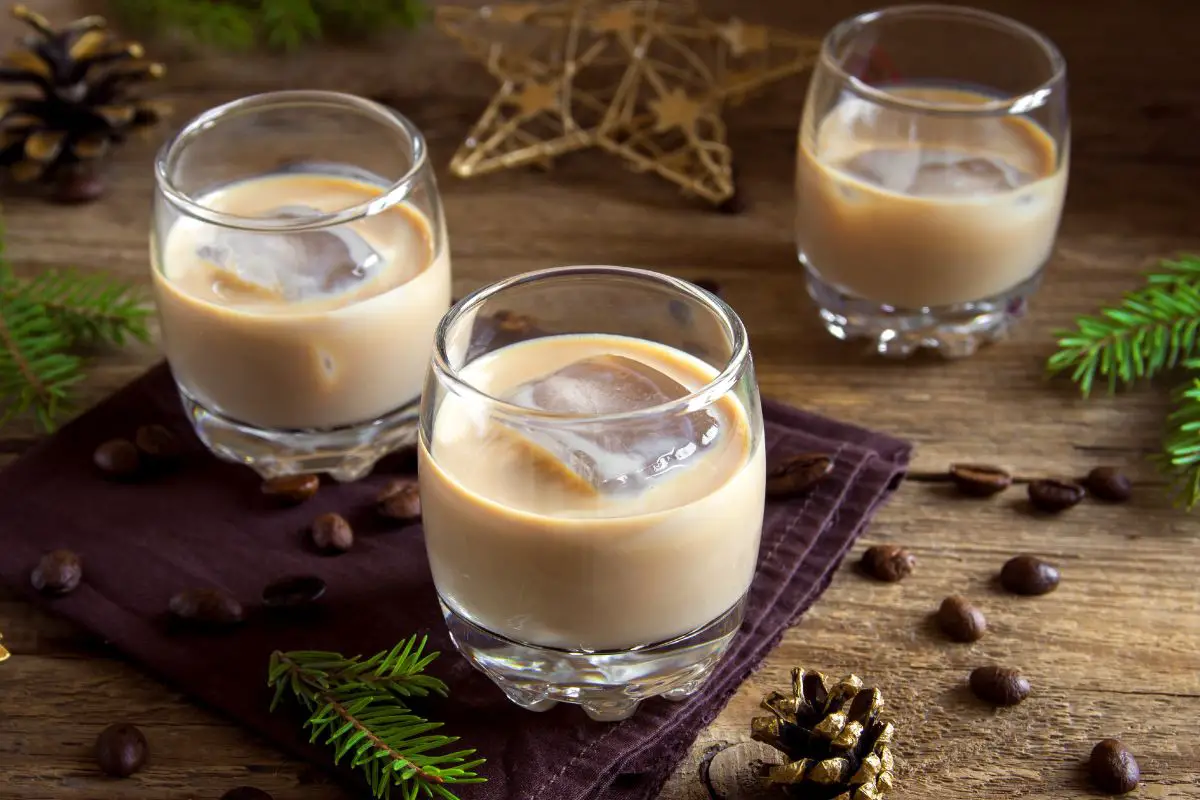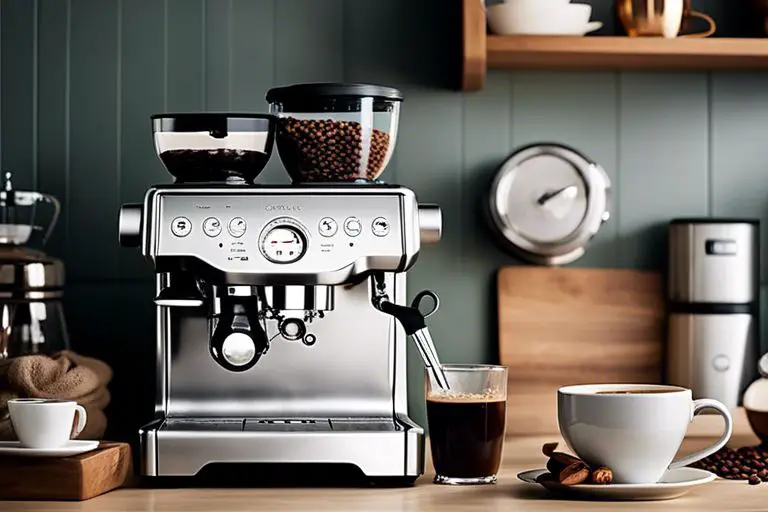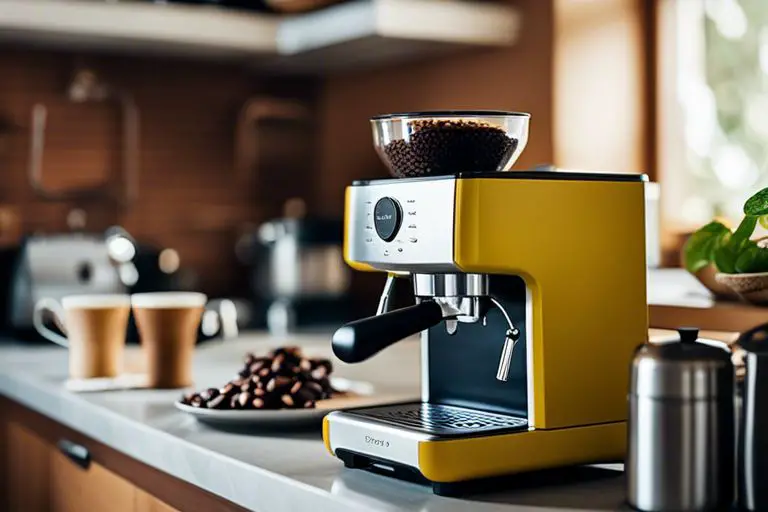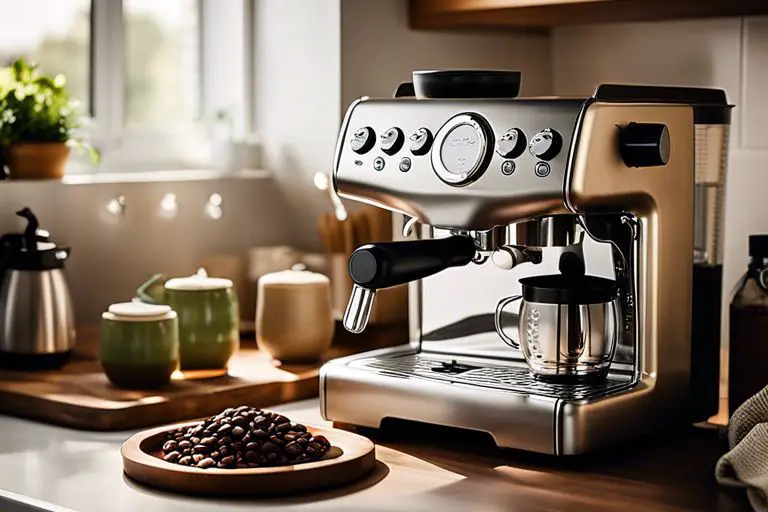The alluring smell of coffee is enough to get almost anyone out of bed in the morning, but having a steaming cup of joe isn’t the only way to get your caffeine fix.
Coffee liqueur may have never interested you before, but once you’ve tried it, you’ll soon be using this boozy ingredient in every dessert and cocktail from then on.
You can enjoy coffee liqueur on its own as a straightforward and invigorating after-dinner drink, or you can add it to a cocktail to give it a powerful flavour with an earthy undertone.
Most people who love coffee liquor tend to buy it in stores, but did you know that it’s super easy to make at home?
Simply standing over heat for a few minutes, pouring the liquid into a jar, and giving the jar a gentle shake once every few days is all that is required to make it. All you need is a little bit of time and some planning.
Rich and full-bodied in flavour, homemade coffee liqueur lacks the syrupy sweetness of store-bought varieties.
Just like how everyone seems to like to make their coffee in a slightly different way to suit their tastes, you can easily customize coffee liquor recipes to be perfect for you.
If you are particular about coffee, you can make your own liqueur using the beans of your choice, and you also have the option of experimenting with different kinds of spirits as the base.
You can increase the complexity of the drink by combining aged and younger rums, but if rum isn’t for you, then you may try something stronger, like bourbon or vodka.
You may even follow in the footsteps of Kahlua (the leading brand of coffee liquor) and flavour your concoction with cinnamon, hazelnut, or peppermint.
Before we dive into the recipes, let’s take a closer look at coffee liqueur.
What’s Coffee Liqueur?
Coffee and alcoholic beverages, two very popular drinks, are brought together in the amazing concoction that is coffee liqueur. In most liquors, a huge amount of sugar is added to smooth out the harsh flavour that alcohol imparts.
Rum and vodka are the two alcoholic beverages that are most frequently used as the base for coffee liqueur. Because it’s based on molasses, the rum will create a very sweet version of coffee liquor compared to one made from a vodka base.
Although Kahlua is the brand of coffee liquor that’s most commonly recognized and consumed, it’s by no means the only variety that can be purchased, and you also have the option of making the liquor yourself.
Making it at home may end up being more cost-effective, and you have the benefit of being able to control the flavours exactly.
Coffee Liqueur Recipies
1. Rum Based Coffee Liqueur
A base spirit, instant coffee, a vanilla bean, sugar, and some water are all you need to make a straightforward recipe for coffee liqueur.
Making this is a fun activity, and you will discover that it’s less expensive than the coffee liqueurs that can be purchased in stores.
The preparation of this liqueur doesn’t take a very long time, in fact you could be done in just 10 minutes.
However, it will take around ten days for the flavour to mature completely, so if you’re making this for an event or as a gift, be sure to prepare it in advance.
When it’s finished, your coffee liqueur can be savoured on its own over ice or in your preferred cocktails, such as the well-known white Russian. You can also pour it over ice cream to spice up your dessert.
Recipe Variations
- Vanilla beans can sometimes carry a hefty price tag. Instead, you can use vanilla extract in this recipe.
- If you would rather not use instant coffee, you can use real coffee beans instead and use half a cup of your preferred roast. Because this could affect the amount of time required for the infusion, it’s recommended that you taste your liqueur frequently. When you’re satisfied with the flavour, drain the beans out of the mixture.
2. Vegan Coffee Liqueur
This homemade coffee liqueur is both simple to prepare and animal product free. You can substitute it for Kahlua in your next White Russian or Coffee Negroni to give those drinks a more strong, earthy, and subtly sweet flavour profile.
This recipe is perfect for whether you enjoy whipping up your own boozy cocktails at home or you follow a vegan diet.
Because of the technique that filters the sugar using bone char, many of the most popular coffee liqueurs that can be purchased in stores, such as Kahlua, are incompatible with a vegan diet.
In place of vanilla beans, vanilla extract is called for in this recipe. This is done so that the flavouring may be more precisely controlled, and so that the end product will have a more uniform vanilla taste across all of the batches.
In the recipe, the lowest amount of extract is what you should use as a starting point. If you want more, add it in increments of 1/4 teaspoon.
When you’re combining simple syrup into drinks, you don’t want it to be too thick or syrupy, so keep that in mind when you’re creating it. Remember, you’re producing a liqueur, not a syrup!
A ratio of one part syrup to one part water results in a finished product that has a pleasant mouthfeel without being overly thick.
What Makes This Vegan?
You may think that all coffee liquor is vegan given that no animal products are used, but for some vegans, the type of sugar used may cause them issues.
The majority of store-bought coffee liqueurs typically contain sugars that have been processed using a filtration system that uses bone char, which means that they are not suited for a vegan diet.
The process of refining sugar via bone char filtration, which quite literally involves making use of charred animal bones, has been around since the 19th century.
However, vegan sugar is not impossible to find, in fact, you may already have some sitting on a shelf in your kitchen without you realizing it.
If you do a fast search on Google, you will be able to determine whether or not your brand is vegan, and if it’s organic sugar, then it’s quite likely that it is also vegan.
3. Vodka-Based Coffee Liqueur
A vodka-based coffee liqueur is an easy and inexpensive liqueur that you can prepare at home! It’s ideal for sipping after dinner, making cocktails, and giving as gifts.
Like a lot of foods and drinks, the flavours will completely depend on the quality of the ingredients that were put into them.
While you shouldn’t waste expensive vodka on this recipe, using the cheapest brand won’t give you the best flavour. Instead, we recommend using a vodka of medium quality that is unflavored or has a neutral flavour.
4. Cold Brew Coffee Liqueur
You will get an entirely different result if you brew the coffee with cold water rather than hot. You’ll end up with a liqueur that can be used in cocktails because the flavour profile of cold brew coffee is more chocolaty and rich than the flavour profile of hot coffee.
This coffee liquor can be enjoyed on its own after supper, or you could even pour it over ice cream if that’s more your style.
If you’re feeling ambitious and want to try your hand at some caffeine-infused do-it-yourself liquor, then you should give this recipe a go.
Top Tips For Making Coffee Liqueur
No matter what recipe you’re following, these top tips can be helpful to try out.
- Adjusting the amount of coffee, sugar, or vanilla extract in the recipe allows you to create a flavour profile that is uniquely suited to your preferences.
- Because the flavour of your liqueur will be substantially impacted by the instant coffee that you use, you must select a high-quality brand. In a similar vein, the brand of rum or vodka that you use should be one that you wouldn’t mind drinking on its own.
- Instead of using a liquor bottle, which has a narrow neck, you should use a jar or bottle that has a broad mouth so that the solution may be strained more easily.
- The amount of time required varies, as is the case with all types of alcoholic infusions. It’s in your best interest to give it a taste test once every couple of days to monitor how the flavour develops.
- One of the best ways to recycle is to reuse the liquor bottle that your rum or vodka originally arrived in. First, thoroughly rinse the bottle, and then peel off the label. Put on a fresh label with the flavour name and the date that you produced it. For temporary labels, painter’s tape works well.
- Store the liqueur in the same way that you would keep any other type of distilled spirit. It should keep its flavour for a few months if it’s maintained under a tight seal and stored properly.
Summary
Try these amazing coffee liquor recipes the next time you want to spice up your cocktails or desserts. A bottle of this also makes for an excellent gift.




